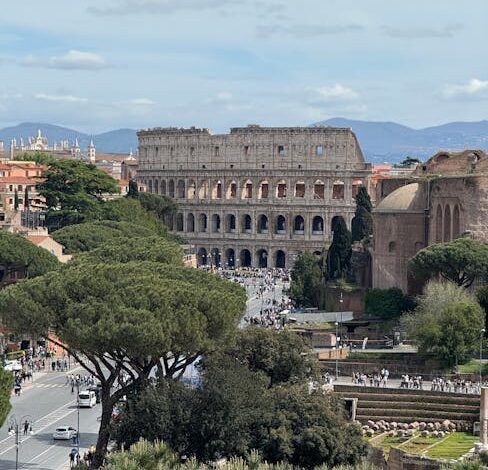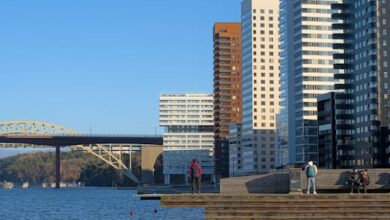A New Chapter for the City That Never Sleeps

New York City, a place synonymous with ambition, diversity, and constant reinvention, has always been a bellwether for the nation. It’s a city that rarely stands still, and its political landscape is no exception. So, when news broke that Zohran Mamdani, at just 34, had been elected its next mayor, becoming not only the youngest in over a century but also the city’s first Muslim mayor, a collective gasp and cheer rippled through conversations. This isn’t just another election result; it’s a moment that truly feels different, signaling a profound shift in what leadership looks like in one of the world’s most iconic metropolises.
For those of us who watch urban politics or simply care about representation, this win is monumental. It encapsulates so many layers of progress and change that have been brewing beneath the surface of American society. It’s a story about youth, identity, and the evolving narrative of who gets to lead.
A New Chapter for the City That Never Sleeps
New York City has always been a melting pot, a place where people from every corner of the globe come to chase dreams. Its streets echo with a thousand languages, and its neighborhoods are vibrant tapestries of cultures. In this context, the election of Zohran Mamdani feels incredibly, organically New York.
The significance of New York City electing its first Muslim mayor cannot be overstated. In a post-9/11 world, where Muslim communities in America have often faced scrutiny and prejudice, this election stands as a powerful testament to resilience, inclusion, and the city’s unwavering commitment to its diverse identity. It sends a clear message: that leadership knows no singular background, and that merit and vision are what ultimately count, regardless of faith or origin.
Breaking Barriers: More Than Just a Title
Beyond the simple fact of being the “first,” there’s a deeper, more resonant impact. For countless young Muslims across New York and indeed, the entire nation, Mamdani’s victory offers a tangible example of what’s possible. It demolishes preconceived notions and opens doors that might have once seemed closed. Representation isn’t just a buzzword; it’s about seeing yourself reflected in positions of power, believing that your voice and experiences are valued, and that your path to leadership is legitimate.
This isn’t just about one individual achieving a high office; it’s about the collective aspiration he embodies. It’s about signaling to an entire demographic that their civic participation is crucial, and that their dreams for public service are within reach. It’s a beacon, illuminating the path for future generations to step up and shape the world around them.
Youthful Vigor Meets Seasoned Challenges
Then there’s the other striking aspect: Mamdani’s age. At 34, he is the youngest New York City mayor in over a century. Think about that for a moment. New York City is a beast of a metropolis, with an operating budget larger than many countries, a sprawling public transit system, complex housing crises, and an economic engine that drives global markets. To lead such a city requires an extraordinary blend of vision, pragmatism, and sheer grit.
Youthful leadership often brings with it a distinctive energy and a fresh perspective that can be invaluable. Younger leaders are often less bound by traditional political dogmas and more open to innovative solutions, leveraging technology, and engaging with constituents in novel ways. They tend to be acutely aware of issues affecting their own generation – climate change, student debt, accessible housing, and digital equity – bringing these concerns to the forefront of policy discussions.
The Power of a New Generation’s Voice
For a city like New York, grappling with the aftermath of global events and constantly reinventing itself, this youthful vigor could be a significant asset. It suggests a potential shift towards policies and initiatives that are forward-looking, perhaps challenging the status quo in areas where older approaches have faltered. Imagine the possibilities of a mayor who grew up with the internet, understands the gig economy intrinsically, and views civic engagement through a lens of digital accessibility.
Of course, youth also comes with its own set of challenges. Experience, or rather, the perceived lack thereof in certain political circles, will undoubtedly be a talking point. But what Zohran Mamdani might bring to the table is not just youthful idealism, but perhaps a nuanced understanding of modern urban complexities that can only come from living through them as a younger citizen. It’s a dynamic blend of hope and pragmatism that New York might just need right now.
What This Means for the Future of Urban Leadership
The ripple effects of Zohran Mamdani’s election will extend far beyond the five boroughs. Major cities across the United States and even globally often look to New York for cues, for innovative policies, and for examples of what’s possible in a diverse urban environment. This election sets a powerful precedent, challenging the traditional archetypes of who can hold high office.
We are seeing a clear trend across the political landscape: a growing demand for leaders who genuinely reflect the rich tapestry of their communities. Voters are increasingly seeking authentic voices, individuals who bring lived experiences that resonate with a broader segment of the population. Mamdani’s victory is a powerful affirmation of this shift, demonstrating that identity, when coupled with a compelling vision and genuine connection to the people, can be a profound strength in modern politics.
Beyond Identity: The Substance of Representation
While the historical significance of his identity and age is undeniable, the true measure of Mamdani’s tenure will, of course, lie in his ability to govern effectively. The hope is that this groundbreaking representation will translate into tangible improvements in the lives of New Yorkers – addressing critical issues like affordable housing, public transportation, education, and economic equity. The symbolism opens the door, but the substance of his leadership will define his legacy.
A Beacon of Hope and Progress
Zohran Mamdani’s election as New York City’s first Muslim and youngest mayor in over a century is more than just a political headline. It’s a story of breaking barriers, of the evolving American identity, and of a city’s unwavering commitment to embracing its rich diversity. It’s a moment that inspires, demonstrating that the future of leadership is becoming increasingly inclusive, representative, and reflective of the vibrant communities it serves.
This is a testament to the idea that in a city as diverse and dynamic as New York, anyone with a vision and the will to serve can rise to lead. It’s a hopeful sign for the future of urban leadership, suggesting that our cities are ready for fresh perspectives and a deeper, more authentic form of representation. The eyes of the world will now be on New York, watching this new chapter unfold.





